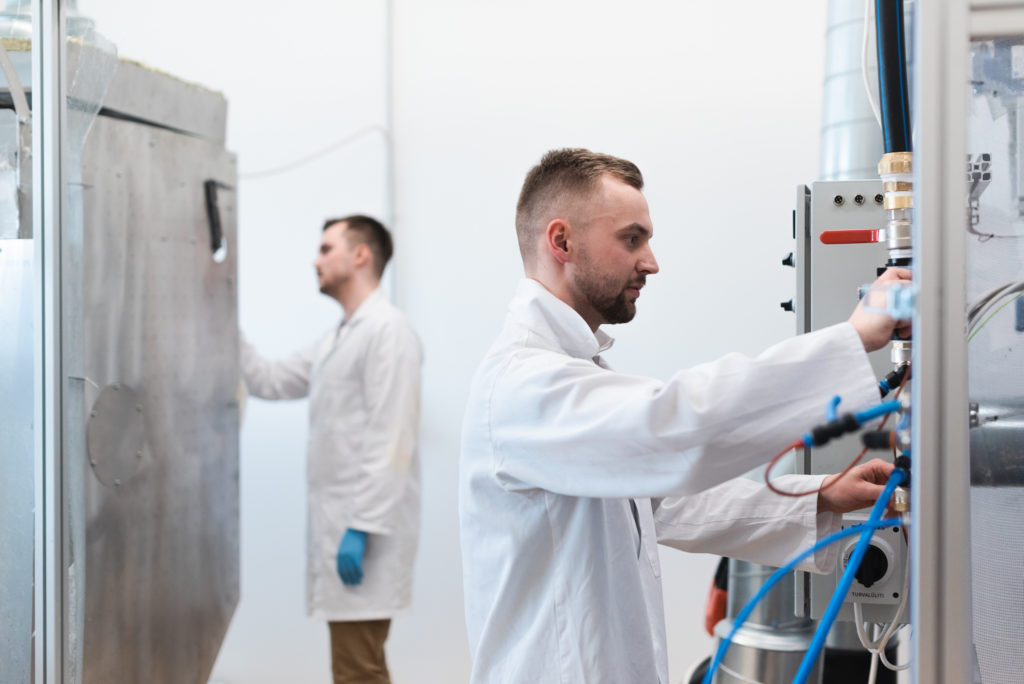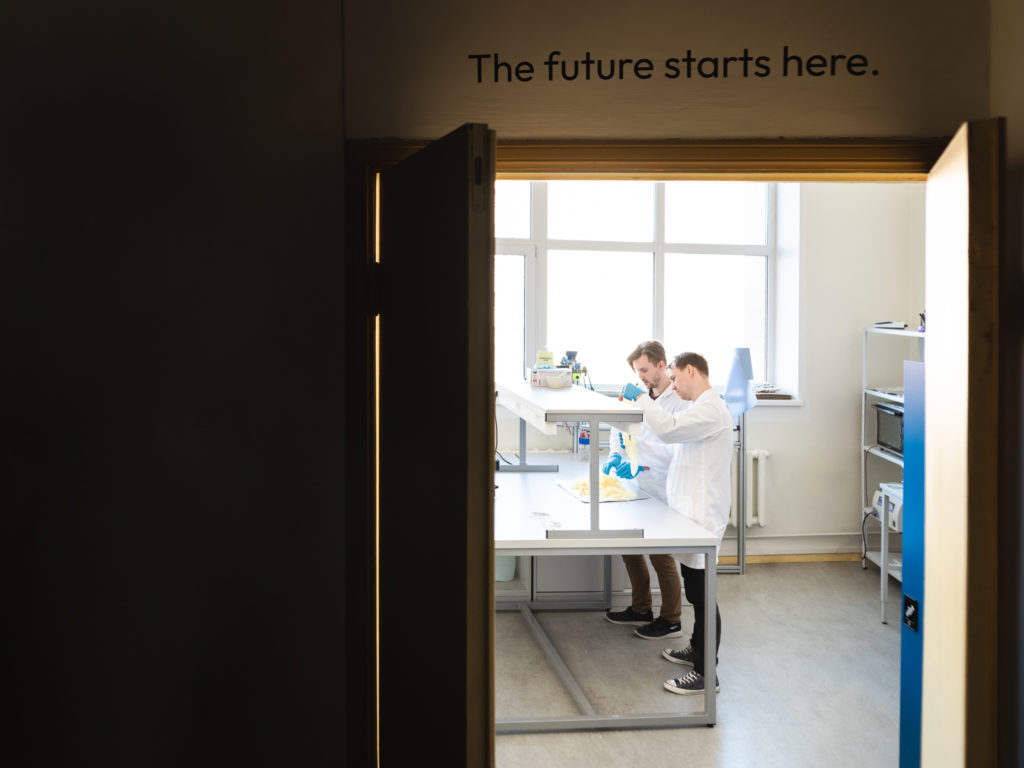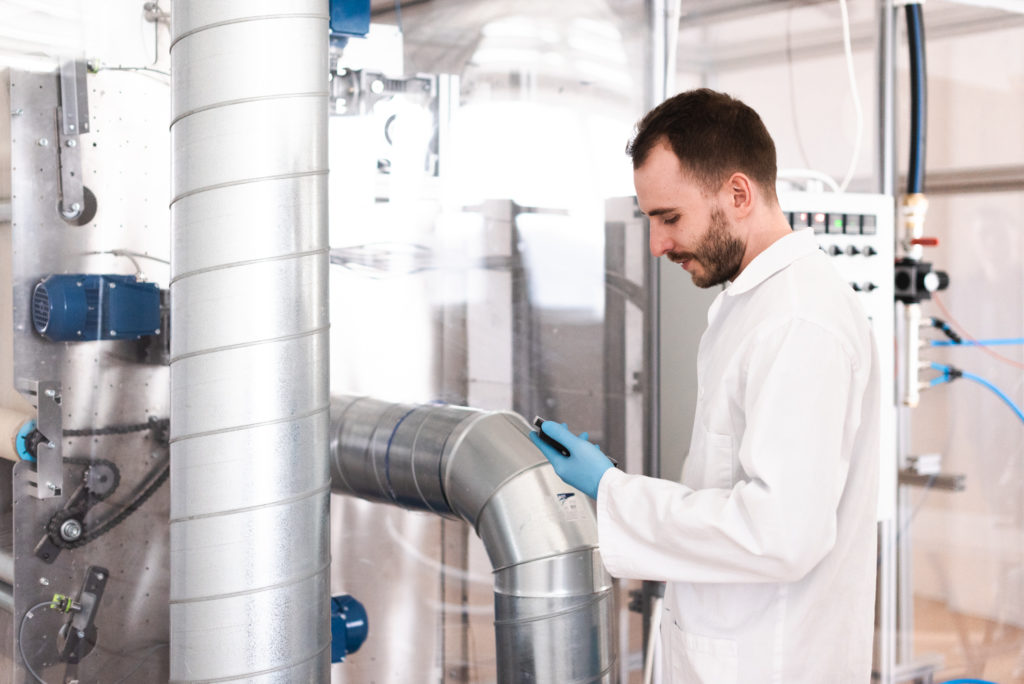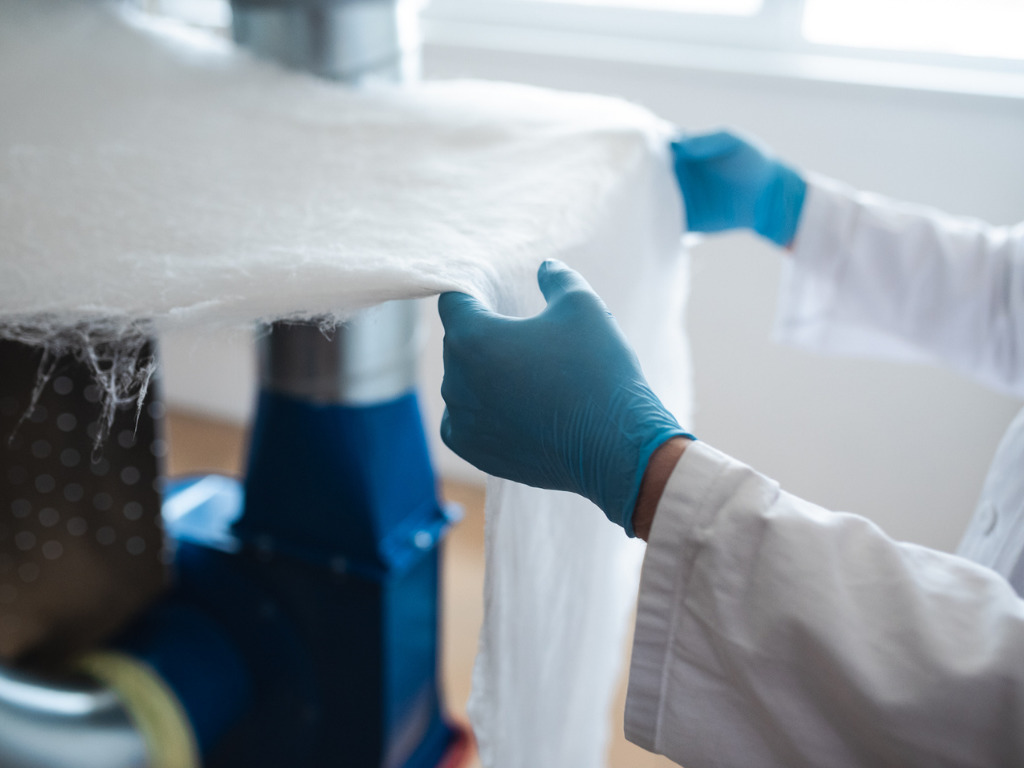Gelatex Claims To Have Solved One Of Cultivated Meat’s Biggest Scaling Hurdles: Affordable Scaffolding
3 Mins Read
Estonia-based Gelatex claims that its nanofiber scaffolding system is now able to support the production of 300 tonnes of cultivated meat per year. Using plant-based polymers, the startup has been able to drastically reduce the cost of substrates, removing another obstacle to commercial availability of cell-based protein products.
Conventional meat production has tripled in the last 50 years. Current output is estimated at more than 340 million tonnes per year. As a result, natural resources are being depleted, greenhouse gas emissions are on the rise and population health is declining. Cultivated meat is identified as a potential solution, though scaling to match the size of the animal meat industry is an uphill battle.

Following through on funding round promises
In December last year, Gelatex closed a $1.2 million seed funding round. It planned to use the investment to continue developing its plant-based scaffold solutions, which it cites as being 90 percent cheaper than conventional alternatives. New production premises were in the construction phase.
A larger research, engineering, and production plant has been completed, allowing for a drastic scale-up of Gelatex’s nanofiber manufacturing capabilities. Today, capacity stands at five kilograms per hour, due to high-throughput technology being installed. Conversely, electrospinning methodologies allow for just 360 grams of nanofiber to be produced per hour. Plans are in place to double current output by the end of 2022, which would produce 300 tonnes per year.
“Nanofibers have been used for tissue engineering for a long time but until now they have been expensive and difficult to scale. Therefore, no viable solutions are available for cultured meat companies,” Märt-Erik Martens, CEO of Gelatex explained in a statement. “At Gelatex we solved scalable nanofibers manufacturing because of our own need at first and are now glad to take off the table one challenge that needs to be solved for cultured meat companies.”
Gelatex notes that some cultivated operations are looking to start manufacturing between 50 and 150 tonnes of meat as soon as later this year. The startup claims that with this in mind, it will be in a position to provide scaffolding for three or four meat producers looking to make inroads into commercialisation. The U.S.’s Upside Foods, as an example, has already made plans to create 400,000 pounds (approximately 181,500 kilograms) of meat a year, once regulatory approval is granted.

Small-scale expansion for widespread progress
Nanofiber scaffolding can be manufactured in relatively small premises. Gelatex states that its machines take up less than 10 square metres. This has allowed for the larger premises to remain modest and cost-effective. In total, the new location, in Tallinn, Estonia, covers just 370 square metres. This includes manufacturing space, offices, and development labs. Future plans also include automated processes.
Traditional cultivated meat scaffolding has been estimated to cost $100,000 per kilo. Back in December, Gelatex stated that its alternative comes in at £1,000 per kilo and could become cheaper still. The latter will be dependent on the startup’s ability to keep scaling its technology, which it claims will pose no problem.
Suitable for use with beef, pork, chicken, fish, and seafood cells, Gelatex states that its nanofiber is being constantly optimised. The ultimate goal is to make cultivated meat cheaper than its conventional counterpart.

Scaffolding as a global concern
Over in Mexico, Micro Meat has the same concerns as Gelatex. It too is seeking to make scaffolding affordable and scalable to support the cultivated sector in its infancy. Still in its R&D phase, the Monterrey-based startup has secured $525k in funding, with Y-Combinator participating in the investment. Successful development of a scaffold that can be scaled from grams to tonnes has been confirmed.
All photos by Gelatex.





